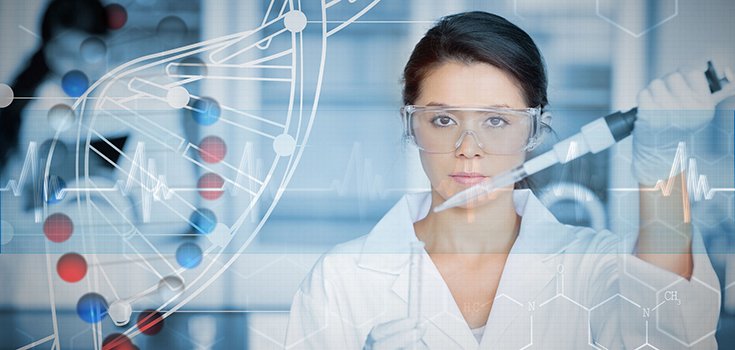Scientific Panel Softens Stance on Human Gene Editing

A science advisory group formed by the National Academy of Sciences has softened its stance on genetically engineering human eggs, sperm, and embryos, but warns the technology should only be used to prevent disease and not to create “designer babies.”
More specifically, the group says that humans should only be engineered to prevent disease and disability, only when no “reasonable alternative” exists, and only when a plan has been established to track the effects of the genetic alterations through multiple generations. [1]
Being able to genetically modify humans once seemed like a futuristic pipe dream, but technology and scientists’ understanding of it has evolved rapidly in recent years. The CRISPR-Cas9 technique allows researchers to snip away unwanted pieces of the genome and replace them with new strands of DNA.
Understandably, for parents who carry disease-triggering genes and are fearful that their children could face unbearable suffering, the advancements bring great hope.
But the potential ramifications of misusing the technology are like something out of a sci-fi horror movie, where governments create super-soldiers and parents select genetic aspects of their future offspring to possess desired traits, like superior intelligence or good looks, or athletic ability.
An international group of scientists warned just over a year ago that it would be “irresponsible to proceed” with altering the human genome in a heritable fashion until researchers had a better understanding of the risks and until there was “broad societal consensus about the appropriateness” of any proposed change.
The group has softened its stance on the issue because the techniques involved in altering the human genome have advanced to the point that scientists have no choice but to consider the potential ramifications of the technology now.
“Previously, it was easy for people to say, “This isn’t possible, so we don’t have to think about it much.’ Now we can see a path whereby we might be able to do it, so we have to think about how to make sure it’s used only for the right things and not for the wrong things.”
Scientists are especially concerned how genome editing might be used in other countries like China, where researchers announced in 2015 that they’d already begun work editing human embryos, though none of them have been implanted in the womb so far. [2]
Clinical trials of genome editing aimed at correcting diseases caused by a single cell mutation are already in the works. However, these therapies affect only the patient. [3]
Read: First Human Injected With Controversial Genetically Modified Genes
The group’s 200-page report serves as sort of an ethical guide for responsible gene-editing. It took the scientists over a year to develop the recommendations. [2]
R. Alto Charo, a bioethicist at the University of Wisconsin, Madison, and one of the committee’s leaders, says:
“If we have an absolute prohibition in the United States with this technology advancing, it’s not like it won’t happen. We see an advantage of setting out a stringent regulation that guards against the uses that people are most fearing and signals to the rest of the world what it should look like when it’s done right.” [1]
Sources:
[2] Bloomberg
[3] Reuters
